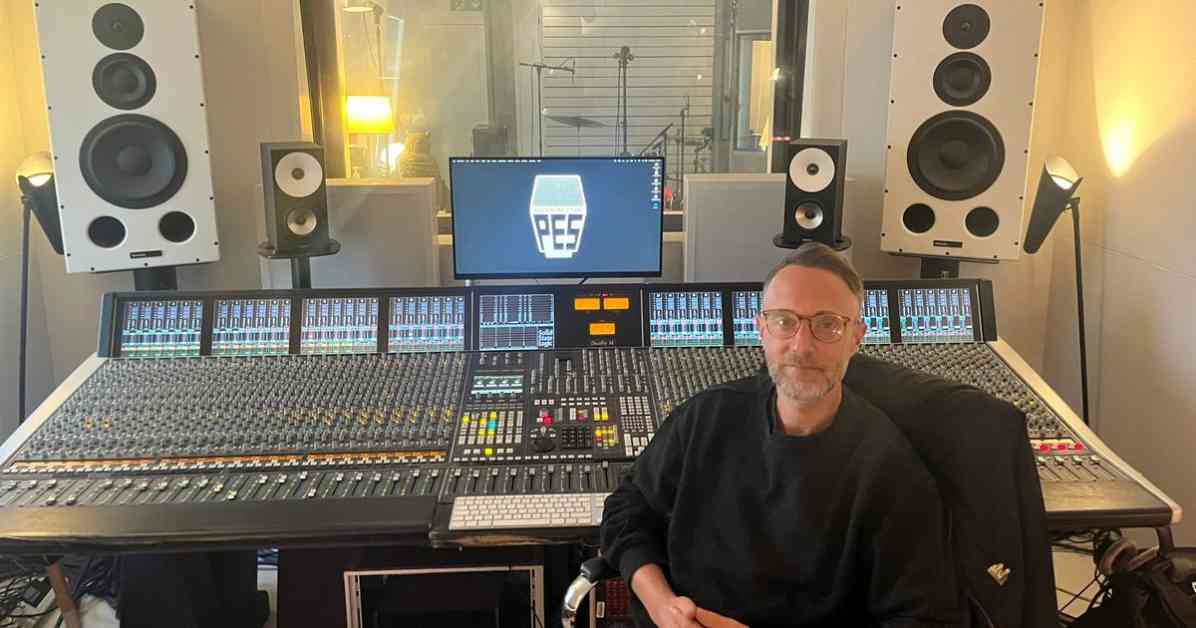Uncovering Edinburgh’s Vibrant Music Scene: Meet the Passionate Artists
Edinburgh may be world-famous for the arts, but music lovers might not think of the Scottish capital as one of the UK’s sonic hubs. The capital seems to live in the shadow of its bigger, grittier neighbor in Glasgow, which boasts a massive scene and countless homegrown success stories – including Belle & Sebastian, Franz Ferdinand, and The Fratellis, to name just a few. In recent years, Edinburgh’s live music landscape has faced challenges, including widespread venue closures. Locals will fondly remember Studio 24 and Electric Circus tap out in 2017, but the losses date back even further – the early 2000s ushered out The Venue and Odeon, among others. Those still standing are often treading water – The Jazz Bar was saved this year shortly after announcing its closure.
Edinburgh’s scene is far from dead. In fact, it is currently experiencing a surge in energy, talent, and variety. Edinburgh Live spoke to the capital’s legion of passionate artists, recording managers, and DIY organizers to hear about how the scene fosters its local talent.
### Post Electric Studios: Nurturing Local Acts
Post Electric Studios in Leith manages local acts like Hamish Hawk and Redolent. Rod Jones, the guitarist for Edinburgh mainstay Idlewild, now runs Post Electric, a Leith-based recording studio that manages a handful of local acts. Rod acknowledged Edinburgh boasts a less “cohesive” scene than Glasgow but rejected the notion that Edinburgh was not a “music city” in its own right. Despite a decrease in venues in recent years, Rod asserted passionate people within the scene are more pivotal to its survival than anything else. He highlighted the importance of venues like Sneaky Pete’s, a premier grassroots venue where the manager Nick Stewart has built a robust outlet for touring and local artists.
Mark Thorne owns one of the new indy record stores currently boosting Edinburgh’s scene. In 2022, he opened Thorne Records in Bruntsfield to huge success. The shop is painted sunshine yellow and seems to pull you in from the street to browse for vinyl. Mark curates his stock based on the scene and engages locals in Edinburgh’s music scene, providing a platform for artists and fans to connect.
### Fuzz Bat Gigs: Fostering Grassroots Talent
Maintaining Edinburgh’s music scene is a community effort, as seen through the work of DIY organizer Stu Fraser, who runs Fuzz Bat Gigs. Since 2019, Stu has organized gigs out of Leith Depot, showcasing local grassroots acts. Stu aims to provide a nurturing environment for budding Edinburgh artists, emphasizing the importance of grassroots organizing in a thriving local scene. He believes in the value of supporting new and established bands alike, giving them a platform to grow and connect with audiences.
The presence of sub-genre is a good litmus test for the health of a city’s music scene. Without spaces for variety and experimentation, a scene is only skin-deep. Edinburgh is now seeing niche genres cropping up, attracting avant-garde talent from across the world. Sonam Gray, one of the founders of Wave Table, an experimental synth collective, has created a space for artists to try new things without the pressure to be marketable or mainstream. Wave Table has become a mainstay for the genre, attracting musicians from across the globe and providing a platform for unique sounds and experimentation.
### Challenges and Community in Edinburgh’s Music Scene
Intimacy is characteristic of Edinburgh as a mid-sized city and can be an asset for artists who find a niche in the tight-knit and supportive music scene. Musicians report that while the scene can be insular, it fosters a communal environment where artists can grow and connect with like-minded individuals. Artists like Robin Herbert have found success in Edinburgh’s scene, emphasizing the importance of community and collaboration in their musical journey.
However, artists also acknowledge the challenges present in the landscape, such as limited practice spaces and the struggle to make a living as a musician. Despite these obstacles, artists like Craig Nicholson find a sense of community and family within the music scene, highlighting the supportive network of musicians and DIY organizers that make Edinburgh’s scene unique.
In conclusion, Edinburgh’s music scene is a vibrant and diverse community that is experiencing a resurgence in energy and talent. From recording studios to indie record stores, DIY gigs to experimental collectives, the city is home to a thriving music culture that values passion, creativity, and collaboration. While challenges exist, the sense of community and support within the scene is what drives its growth and success. Edinburgh may not be as well-known as Glasgow in the music world, but it has carved out its own niche and continues to be a hub for local talent and innovation in the industry.













